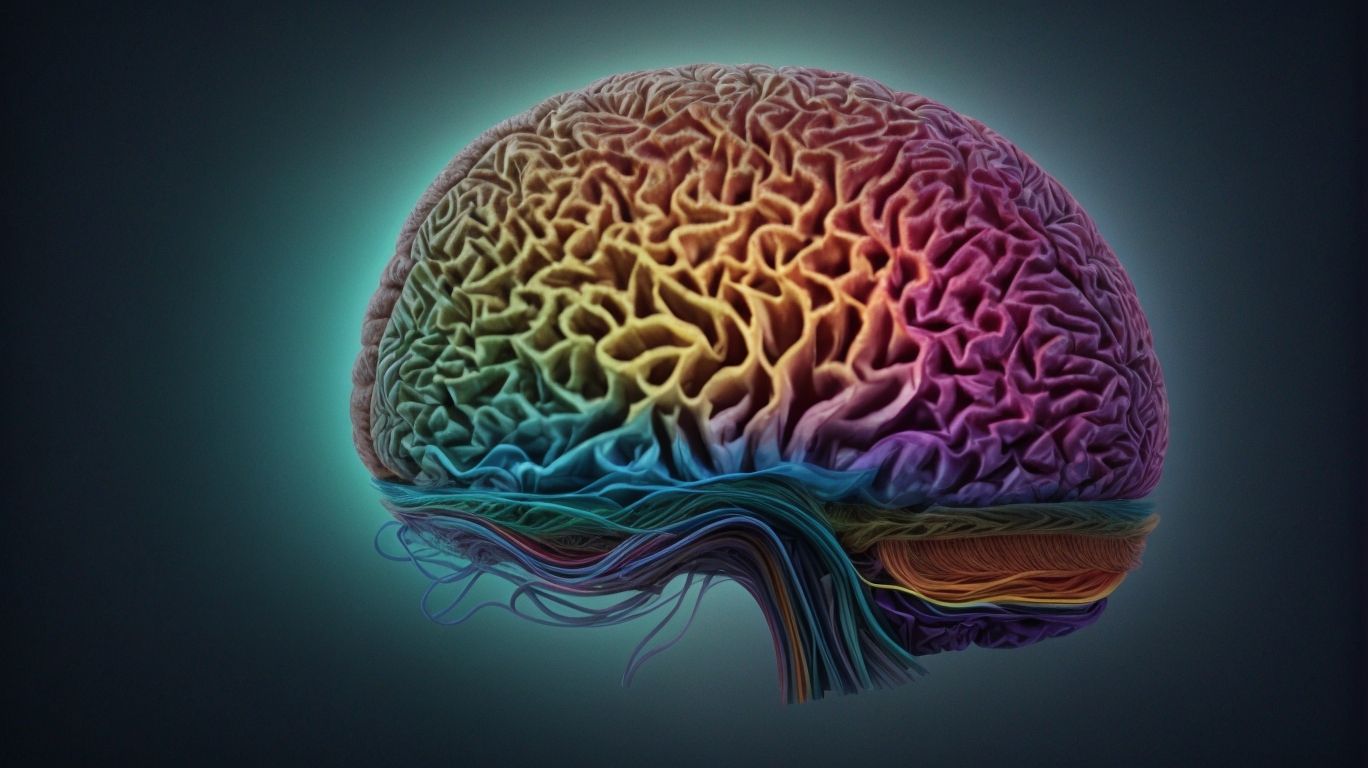Welcome to the fascinating world of psychology, where the complexities of the human mind are explored and understood.
In this article, we will take a deep dive into the evolution of psychology, its main branches, key theories, and practical applications in everyday life.
From cognitive psychology to behaviorism, we will unravel the various aspects of this field, shedding light on how it impacts our understanding of human behavior, mental health, relationships, and even performance and productivity.
So, let’s embark on this enlightening journey into the depths of psychology.
Contents
- 1 Key Takeaways:
- 2 What Is Psychology?
- 3 How Did Psychology Evolve?
- 4 What Are the Main Branches of Psychology?
- 5 What Are the Key Theories in Psychology?
- 6 How Is Psychology Applied in Everyday Life?
- 7 Frequently Asked Questions
- 7.1 What is psychology and why is it important to study?
- 7.2 What topics are covered in an introductory psychology course?
- 7.3 What are the benefits of learning about psychology?
- 7.4 Is psychology a science?
- 7.5 What career options are available with a background in psychology?
- 7.6 How can studying psychology benefit my personal life?
Key Takeaways:
- Psychology is the study of the human mind and behavior, encompassing various branches and key theories.
- Key theories in psychology include behaviorism, psychoanalysis, humanistic psychology, and gestalt psychology.
- Psychology has practical applications in everyday life, such as understanding human behavior, improving mental health, and enhancing relationships and performance.
What Is Psychology?
Psychology is the scientific study of the human mind and its functions, encompassing an exploration of the depths of the unconscious mind, a concept central to the works of influential figures such as Carl Jung.
Understanding the unconscious mind is a vital aspect of depth psychology, a branch that delves deep into the hidden layers of human consciousness, aiming to unearth hidden motives and desires.
Within this context, dream analysis plays a crucial role, offering a window into the subconscious. Carl Jung, a pivotal figure in the field, introduced the concept of archetypes and the collective unconscious, revolutionizing our perception of the human psyche.
How Did Psychology Evolve?
The evolution of psychology is deeply intertwined with the paradigm-shifting contributions of visionaries like Sigmund Freud and C.G. Jung, who integrated elements of Eastern philosophy and Western mysticism into their groundbreaking theories, laying the foundation for transpersonal psychology.
Freud’s psychoanalytic theory delved into the unconscious mind, highlighting the significance of early childhood experiences and the role of the id, ego, and superego.
Meanwhile, Jung’s analytical psychology explored the collective unconscious, archetypes, and the process of individuation. Their innovative ideas sparked a new wave of psychological exploration, paving the way for the emergence of transpersonal psychology.
This approach emphasizes the interconnectedness of mind, body, and spirit, drawing inspiration from various spiritual traditions. It fosters a holistic understanding of human consciousness and well-being.
What Are the Main Branches of Psychology?
The main branches of psychology encompass a diverse array of fields, ranging from the study of psychological types and inner work to the investigation of mental illness and the academic exploration of dream series.
Cognitive Psychology
Cognitive psychology delves into the intricate workings of the mind, exploring phenomena such as symbols, synchronicities, and the application of cognitive behavioral therapy to understand and address psychological challenges.
Cognitive psychology offers valuable insights into the human thought processes. It investigates the mental mechanisms responsible for learning, memory, decision-making, and problem-solving.
By studying the way individuals process information, perceive their surroundings, and react to various stimuli, cognitive psychology sheds light on the complex interplay between cognition and behavior.
Developmental Psychology
Developmental psychology encompasses the study of the evolving psyche, with a particular emphasis on the integration of transpersonal theory and the profound insights of visionaries such as Ken Wilber.
One of the crucial aspects of developmental psychology is the understanding of the dynamic nature of human growth, not just in early childhood, but throughout the lifespan.
It delves into the cognitive, emotional, and social transformations that occur, influenced by external factors as well as intrinsic developmental processes.
The incorporation of transpersonal theory in the realm of developmental psychology sheds light on the spiritual dimensions of human development, emphasizing the interconnectedness of individuals with the broader cosmos and the transcendence of ego-centric perspectives.
Social Psychology
Social psychology delves into the dynamics of the personal psyche, shedding light on internal tensions and the profound impact of archetypal psychology on individual and collective behavior.
This field of study elucidates the intricate interplay between one’s mental processes, emotions, and social interactions, offering a nuanced understanding of how archetypes shape perceptions, attitudes, and responses.
From the collective unconscious proposed by Carl Jung to the manifestations of archetypal symbols in various cultures, social psychology uncovers the deep-seated influences that underpin human behavior and societal dynamics.
Clinical Psychology
Clinical psychology is devoted to the compassionate understanding and treatment of mental illness, diving into the intricate manifestations of the persona and shadow within the human psyche.
Clinical psychology places great emphasis on understanding and addressing mental illness. It delves into the complexities of human consciousness, exploring the dynamic relationship between the persona and shadow.
This field values empathy and strives to support individuals dealing with psychological challenges through personalized evaluations and therapeutic interventions.
By shedding light on the hidden aspects of mental health, clinical psychologists aim to bring comfort and give the power toment to those in need.
Educational Psychology
Educational psychology is dedicated to illuminating the transformative potential of dream work and the integration of the anima and animus archetypes within the realm of learning and development.
Dream psychology delves into the subconscious processes that underpin learning. It aims to shed light on the significance and impact of dreams on cognitive and emotional development.
This field explores the interplay between the unconscious mind and the educational journey. It emphasizes the value of introspection and self-awareness in fostering holistic growth.
What Are the Key Theories in Psychology?
The key theories in psychology encompass an exploration of the profound workings of the psyche, the significance of dream analysis, the symbolism inherent in human experiences, and the transformative insights of transpersonal psychology.
With a focus on the depth and complexity of the human mind, these theories aim to unravel the intricacies of thought processes, emotions, and behaviors, shedding light on the intricate web of conscious and unconscious motivations.
Dream analysis, a significant component, delves into the subconscious realm, interpreting the hidden messages and meanings in dreams, offering a window into the innermost thoughts and emotions.
In parallel, the exploration of symbolism in human experiences reveals the profound ways in which individuals attribute meaning to their surroundings, interactions, and experiences, shaping their perceptions and worldview.
Behaviorism
Behaviorism delves into the intricate manifestations of the collective unconscious and the diverse psychological types, offering entry points for reading Jungian psychology and exploring the depths of the human psyche.
By diving into the realm of behaviorism, one can gain invaluable insight into the various ways in which the collective unconscious influences human behavior, thoughts, and emotions.
The concept of psychological types, as elucidated by Jung, provides a framework for understanding the inherent differences among individuals and how these differences shape their responses to the world around them.
Exploring Jungian psychology through the lens of behaviorism opens up a rich tapestry of themes related to archetypes, the shadow self, and the process of individuation, offering a profound exploration of the complexities of the human psyche.
Psychoanalysis
Psychoanalysis delves into the transformative journey of individuation, the profound influence of archetypes, and the invaluable insights offered by luminaries such as Marie-Louise von Franz.
This transformative journey, as explored within the realm of psychoanalysis, focuses on the development of an individual’s unique identity and self-realization.
Through the analysis of unconscious processes and symbolization, archetypes play a pivotal role in shaping one’s psyche and behavior, reflecting universal themes and patterns.
Marie-Louise von Franz, a prominent figure in the field, contributed significantly to the understanding of psychological symbolism and the interpretation of dreams, enriching the depth of psychoanalytic exploration.
Humanistic Psychology
Humanistic psychology embraces the profound exploration of dream analysis, the enigmatic landscape of the personal unconscious, and the captivating insights offered by scholars like Robert A. Johnson.
This domain of psychology focuses on the holistic understanding of individuals, emphasizing subjective experiences and the quest for self-actualization.
Dream analysis is seen as a pathway to unravel the unconscious mind, offering valuable symbols and messages from the psyche.
The notion of the personal unconscious, as proposed by Carl Jung, adds depth to this exploration by diving into the hidden reservoir of individual experiences, archetypes, and the collective unconscious.
Scholars like Robert A. Johnson have further illuminated the realm of dream interpretation, enriching the understanding of psychological symbolism and the integration of unconscious elements.
Gestalt Psychology
Gestalt psychology is dedicated to unraveling the mysteries of symbolic language, the profound connections with philosophy, and the intricate interplay with arts and literature within the human experience.
This school of thought delves into how the human mind perceives and organizes the world around it, emphasizing the holistic approach that the mind takes in processing information. It explores the concept of ‘wholeness’, where the whole is greater than the sum of its parts, and how this principle influences human cognition and understanding.
Symbolic language, a cornerstone of Gestalt psychology, delves into the idea that symbols carry a deeper meaning and can evoke emotional responses that transcend their literal representations.
This concept has profound connections with philosophy, particularly in the realms of semiotics, phenomenology, and existentialism, enmeshing the study of symbols and their meaning within the fabric of human consciousness.
How Is Psychology Applied in Everyday Life?
Psychology is applied in everyday life through a profound understanding of inner processes, the dynamic interplay of psychic energy, and the recognition of symbols and synchronicities that shape human experiences.
Understanding the intricacies of the subconscious mind enables individuals to comprehend their own behavior and that of others, thereby enhancing relationships and communication.
The concept of psychic energy is utilized in stress management techniques, where individuals learn to channel their mental and emotional energy effectively.
Recognizing symbols and synchronicities helps in interpretation of dreams, guiding decision making, and finding meaning in seemingly random occurrences.
The practical applications of psychology extend to various domains, such as therapy, education, business, and personal development, enriching everyday lives and societal dynamics.
Understanding Human Behavior
Understanding human behavior is enriched by the profound insights of archetypal psychology and the recognition of the collective unconscious as influential forces shaping individual and collective actions.
Archetypal psychology delves into the universal patterns and symbols that influence human behavior, transcending cultural and historical boundaries.
It emphasizes the role of primal archetypes, such as the Hero, the Shadow, and the Anima/Animus, in shaping our perceptions, motivations, and interactions.
The recognition of the collective unconscious, as proposed by Carl Jung, highlights the interconnectedness of human experiences and the shared reservoir of primal images and experiences.
This collective influence manifests in cultural mythologies, religious symbolism, and societal norms, profoundly impacting individual psyches and societal dynamics.
Improving Mental Health
Improving mental health involves the profound practice of active imagination, the acknowledgment and integration of the shadow, and the exploration of the persona for holistic well-being.
Active imagination, a concept introduced by Carl Jung, encourages individuals to engage with their inner creativity and imagination to process emotions and experiences, leading to enhanced mental well-being.
The acknowledgment and integration of the shadow refer to embracing the darker aspects of one’s personality, which can reduce internal conflicts and promote a sense of wholeness.
Similarly, exploring the persona involves understanding and embracing the different roles and masks we wear in our daily lives, allowing for a more authentic and harmonious mental state.
Enhancing Relationships
Enhancing relationships is grounded in the profound integration of the anima and animus archetypes, fostering the transformative journey of individuation for enriched interpersonal connections.
This integration refers to the harmonization of the feminine and masculine aspects within an individual, which is essential for forming healthy and balanced relationships.
The anima archetype represents the unconscious feminine qualities in males, while the animus archetype embodies the unconscious masculine characteristics in females.
By acknowledging and integrating these aspects, individuals can achieve a deeper understanding of themselves and others, leading to more authentic and fulfilling connections.
Embracing the transformative journey of individuation allows for personal growth and self-realization, which positively impacts how individuals engage and empathize with others, ultimately enriching their interpersonal relationships.
Enhancing Performance and Productivity
Enhancing performance and productivity is enriched by the insights of transpersonal psychology, integrating elements of Eastern philosophy and the wisdom of Western mysticism for holistic growth.
Transpersonal psychology emphasizes the potential for self-realization and peak experiences, offering strategies for individuals and organizations to enhance overall well-being and achieve higher levels of performance and productivity.
Integrating Eastern philosophy, such as mindfulness and the concept of balance, provides valuable tools for managing stress, fostering creativity, and cultivating a harmonious work environment.
Meanwhile, the wisdom of Western mysticism offers insights into the depths of human consciousness, inspiring innovative approaches to personal and professional development.
Frequently Asked Questions
What is psychology and why is it important to study?
Psychology is the scientific study of the mind and behavior. It helps us understand human thoughts, emotions, and actions, and how they are influenced by various factors. Studying psychology can lead to a better understanding of ourselves and others, and can also help improve relationships and overall well-being.
What topics are covered in an introductory psychology course?
An introductory psychology course typically covers topics such as the history and methods of psychology, biological processes, cognitive processes, personality theories, abnormal psychology, and social influences on behavior.
What are the benefits of learning about psychology?
Learning about psychology can improve critical thinking skills, increase self-awareness, and enhance communication and problem-solving abilities. It can also provide a deeper understanding of human behavior, which can be applied to various fields such as education, healthcare, and business.
Is psychology a science?
Yes, psychology is considered a science because it uses empirical methods to study and understand human behavior. This means that it relies on systematic observation, experimentation, and data analysis to test hypotheses and draw conclusions.
What career options are available with a background in psychology?
A background in psychology can lead to a variety of career options, including mental health professions such as counseling or therapy, research positions, and applied fields such as human resources, marketing, or education. It can also serve as a solid foundation for further education in fields such as medicine or law.
How can studying psychology benefit my personal life?
Studying psychology can provide insights into our own thoughts, feelings, and behaviors, and help us identify and address any personal issues or challenges. It can also help us understand and empathize with others, leading to stronger relationships and improved overall well-being.



